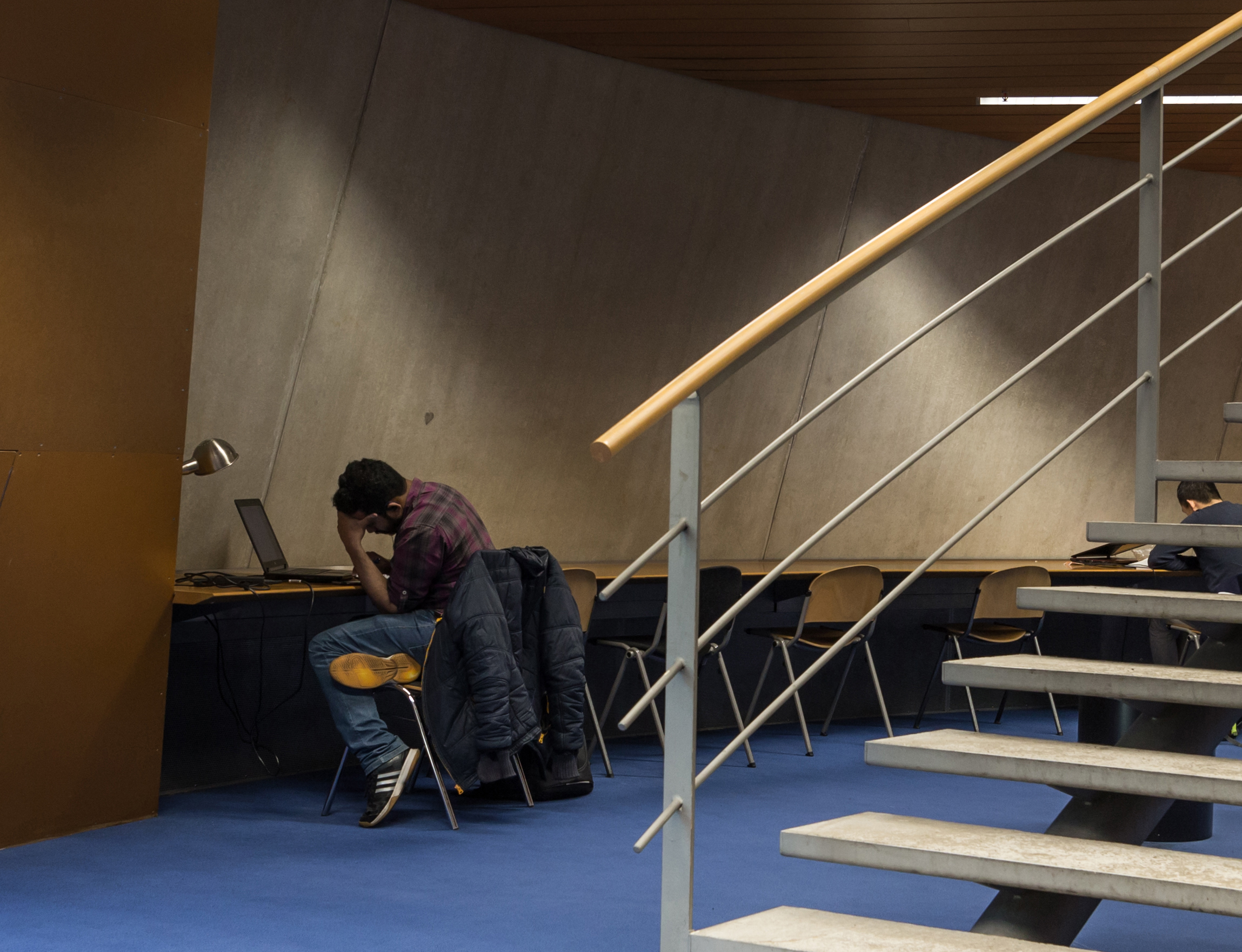Avishek Goel, along with his colleagues Diego Quan Reyes (TU Delft) and Sanne Wassink (RSM), won the Dutch CleanTech Challenge
After this, several other contest wins followed. They proposed a novel idea – GETI – a smart kettle which uses the waste heat from primitive cookstoves (flat plate over a wood-fire) to generate electricity that can be used to light up rooms, charge phones and most importantly, has zero emissions. Avishek and Diego launched their start-up, Quantum Energy and Engineering, this year to alleviate the needs of rural communities around the world by providing sustainable and culturally acceptable energy solutions.
Avishek is already in the library when I arrive. “I am usually always here,” he says, like every other person at TU Delft. “I’ve been busy juggling end of internship work, working on Quantum and starting up the thesis,” says the second-year Master’s student. We settle in at the café, with a cosy Christmas buzz surrounding us, to talk about GETI, his work with rural communities in India and the challenges surrounding sustainability.
“I come from a small village in India. When my father moved to New Delhi, he didn’t have much to his name. But he slowly built himself up from there. I’ve always looked up to him.” I mention he’s had a stellar academic record throughout his student-life, being awarded the gold medal for academic excellence 7 years in a row. “That was way back in school!” he laughs. “I’ve always been the technical guy. I went to Dubai for my Bachelor’s on a scholarship. I’ve always worked really hard for things – I’m glad it’s that way because you realise the value of the money you earn or spend. I also think that back then, I worked hard without the right sense of motivation. I have to say,” he confesses, “I used to work at an oil and gas firm when I was in Dubai for 3 months before I quit.” He paid the fine for breaking a 3 year bond with the company and left for India, where he started working with The Energy and Resources Institute (TERI). He worked there for 3 more years, visiting villages and helping improve their livelihood, before coming to Delft.
He realised something changed when he did a research internship working with bangle makers in India. “I was working on improving the furnace that the bangle makers use and we visited the site. And their working conditions were terrible. You couldn’t possibly stand in front of the furnace they were using for even five minutes but that was their livelihood. Those women and children did that the whole day. This experience, I think, sparked something in me – I became conscious of these realities and wanted to do something that had a social impact.”
Quantum Energy and Engineering or Quantum for short, is the fruit of labour of Avishek and Diego. They are in the phase of developing the prototype. Both of them have synced their Master’s theses in a way that compliments the technical requirements of the company. “Diego proposed the idea of GETI to me one fine evening. We met while working for a project and we realised we had similar visions and values. We both want to be innovators and solve societal problems. And the solution to these problems needs to be simple.” The first product in their portfolio is a smart kettle called GETI. Nearly 1 billion people across the globe do not have access to electricity and are forced to use primitive light sources. An estimated 5.5 million people die annually due to respiratory diseases and noxious fumes released by candles and kerosene lamps. Moreover, according to the WHO nearly 2.1 billion lack access to safe and clean drinking water. GETI, which utilizes the waste heat from primitive cookstoves to provide clean energy, tackles several core problems at once.
They decided to pilot test the project in Guatemala, Diego’s home country. Avishek tells me that Diego, like him, has experience working on the problems of rural communities “He knew the importance of adapting the product to their lifestyle and conforming the technology to their cultural sensibilities.” He says that in Guatemala, the primitive cookstove
Do you have a question or comment about this article?
s.m.bonger@tudelft.nl


Comments are closed.